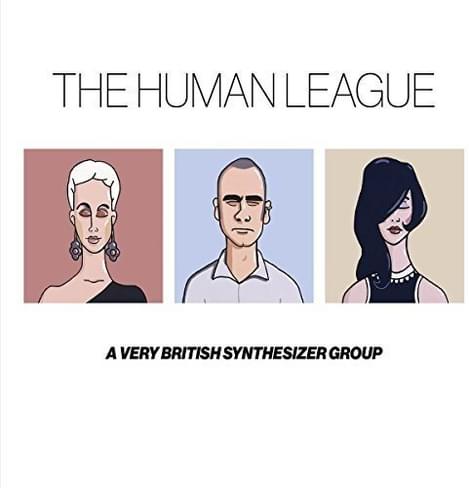The Human League collect 40 years of the future
"Anthology - A Very British Synthesizer Group"

Cabaret Voltaire, ABC, Autechre and the Warp label are all natives to the city who remain deeply influential, but The Human League (and by default Heaven 17 whose Martin Ware and Ian Craig Marsh founded both bands) are arguably the act at the top table of Steel City electronica.
This extensive four disc collection (two crammed with hits, a third of early versions and demos, plus a DVD of videos and TV performances) lays down each of their phases explicitly. They’re one of those acts whose back catalogue is regularly rinsed out by record labels’ repackaging processes, but this is the first to cover their history in such an extensive way; the esoteric cold electronica of their beginnings, the imperial chart topping phase, their rapid fall, unexpected rise at the height of the Britpop phase with “Tell Me When”, and how they managed to avoid the depressing 80s package tour circuit and continue with their integrity intact.
The DVD also visualises this. At the beginning of the decade and the height of their powers, they not only sounded good but looked great. The sight of vocalist Phil Oakey at this time was truly bizarre - a man in eye liner and lipstick, crop tops and heals, with a half finished haircut (pre-dating Dan Ashcroft’s ‘Geek Pie’ by two decades). It was a ridiculous look pulled off with style, but by the end of the decade they looked and sounded like one of those acts ‘we used to like’, one of many victims of the advent of acid house, baggy and the beginning of a new era.
Acid house ushered in a new kind of pop. With the baggy vibes of Manchester or Italo house cluttering the charts for a couple of years, it was easy to see why the likes of The Human League and synthpop in general was cast aside, but while bands such as Depeche Mode looked to rock to forge a future, the 'League stuck with the formula.
For a while though the future, as Bowie put it, was The Human League. “Being Boiled” still sounds like that future, but instead of it being bright and shiny, it was a prediction nuclear war, poverty and Thatcher in power.
Although passive fans will class them as a fluffy pop act (which of course they flirted with once they hooked up with producer Martin Rushent on the Dare album), this collection shows off their esoteric side too. “The Dignity of Labour (Part 3)” is the kind of cold electronica contemporary electronic acts such as Patrice Baumel now excel in, “Empire State Human”’s earwormy hook mask the angsty lyrics about wanting to be as powerful as possible (“I’ll go to Egypt to be the pyramids”), while their strange cover of Iggy Pop’s “Nightclubbing” is the sound of Kraftwerk and The Glitter Band dressed as The New York Dolls, though sung in a heavy Yorkshire accent.
Their full on pop crossover between 81 and 86 is of course fully represented, and remains their best material. If you look at the list of hits from “The Sound Of The Crowd” (bizarrely here in instrumental form) through to the Jimmy Jam & Terry Lewis-produced sultry soul of “Human”, you’d be hard pushed to find another pop act with such a strong cluster of songs, and despite Dare’s 1984 follow up Hysteria being patchy, it contained three top 20 hits, including the rockier “The Lebanon”, whose grinding guitar riffs are comparable to The Cure's work at the time.
Since the 80s the Human League have popped up unexpectedly. The aforementioned surprise hits aside, they’ve maintained a presence, be that with their impressive live shows, tapping into electroclash with 2001’s “All I Ever Wanted”, or their strong comeback album Credo back in 2011, where they stole back everything James Murphy and the majority of DFA acts took from them.
Despite the fact that the future caught up with them, this collection shows that there remains nowt so queer as The Human League.
Get the Best Fit take on the week in music direct to your inbox every Friday

Patrick Wolf
Crying The Neck







